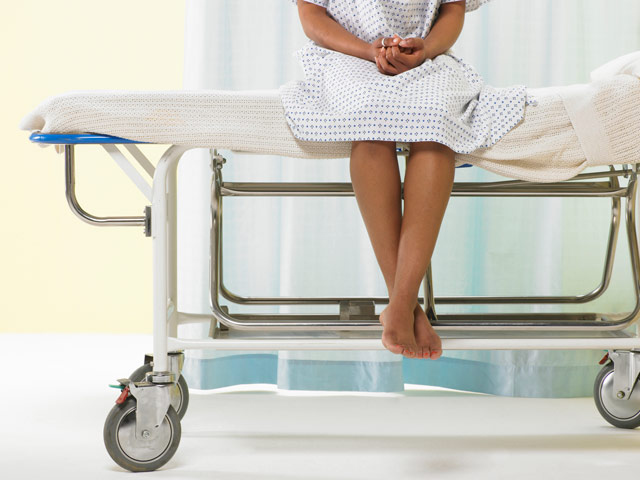Urgent Care with a Degree of Difference
Provided by Beth Israel Deaconess Medical Center
 (Credit: Thinkstock)
(Credit: Thinkstock)
If you have ever been in, or taken someone to, an emergency room, you know they can be crowded, busy, and sometimes chaotic. Patients can wait a long time to be seen, especially if they are not dealing with a serious illness or injury, and often end up paying very high insurance co-pays.
Now, there's a more convenient option for patients who need immediate treatment for non-life threatening medical conditions — two advanced urgent care centers, Beth Israel Deaconess Urgent Care at Chestnut Hill and Dedham Medical Urgent Care Center at Norwood.
Urgent care centers offer "advanced" care, meaning that every patient is always treated by a physician trained in emergency medicine, and more comprehensive services are available — treatment for fractures and other immediate injuries or illnesses, as well as lab and medical imaging. What's more, urgent care centers are seamlessly connected with all Beth Israel Deaconess locations, so patient information can be accessed securely by the urgent care physicians.
"Urgent Care at Chestnut Hill — and in Norwood — is fully integrated into the BIDMC medical record system and we will communicate closely with patients' primary care doctors," says Christopher Fischer, MD, Medical Director of Beth Israel Deaconess Urgent Care at Chestnut Hill. "Primary care doctors are automatically notified when one of their patients is seen in our Urgent Care centers, and all records, notes, lab tests, and imaging are accessible via the same electronic medical record."
Urgent care is not a new concept, but a fast-growing one throughout the U.S. The Urgent Care Association of America estimates that up to 160 million patients seek treatment at urgent care centers each year. Why? There is usually little wait time compared to an emergency room, co-pays tend to be lower, and most are open on holidays and weekends.
The Advantages of Advanced Urgent Care
Every patient who visits urgent care clinics sees a physician who is board certified in emergency medicine — the same doctors who are on staff in the emergency departments at BIDMC and our affiliated hospitals. This is an important difference, as many urgent care centers are staffed by nurse practitioners or physicians who may not be trained to handle true emergency-type visits.
Emergency medicine-trained physicians can quickly and appropriately diagnose and treat problems that other urgent care centers may find too complicated. If one of our urgent care patients has a serious illness or injury that really needs to be treated in an emergency room, they will be transported by ambulance for further care.
Beth Israel Deaconess Urgent Care at Chestnut Hill and Dedham Medical Urgent Care Center both have additional medical facilities on site, including X-ray, CT scan, and a lab for blood testing. Here, the services to diagnose and treat patients are all under one roof for added convenience.
"What makes advanced urgent care different is that we bring all of the resources to the patient," says Fischer. "If lab testing is needed, there is a lab in the urgent care center, and, for most tests, we have the results before the patient leaves the center. If X-rays or CT scans are needed, the patient can get the imaging done right away, and the results are available right away.
Anyone can go to BIDMC's urgent care centers for treatment — care is provided for patients ages 3 months and up, and clinics like these are good options for travelers to be seen for health issues that arise while they're away from their regular doctor. Most insurance plans are accepted, physician and insurance referrals are not needed, and walk-in services are provided — no appointments are necessary.
BIDMC's Emergency Department is a level I trauma center staffed by board-certified emergency medicine physicians and trauma-trained nurses to meet the needs of a high-volume, acutely injured or ill population. Serious illnesses, such as heart attack or stroke, should always be treated in an emergency room.
Above content provided by Beth Israel Deaconess Medical Center. For advice about your medical care, consult your doctor.
Posted September 2014